Boxelder bugs congregate near homes to stay warm, seek shelter, and remain close to food. They’re attracted to sunny, heat-reflecting surfaces like windows, concrete, and homes with southern or western exposure. Boxelders also tend to stay close to their food sources: acer trees such as boxelder, maple, and ash trees.
If you feel like you’re seeing boxelders constantly this summer, it’s probably not just you. Boxelder bugs really are more attracted to some homes than others. Unfortunately, the more attracted boxelders are to your home, the more likely you’ll have to deal with them all year. Unless you do something about it! Here’s what you should know about the boxelders attracted to your home, including how to keep them away.
What are boxelder bugs?
Boxelder bugs, or Boisea trivittata, are a species of true bug native to North America. They’re ½” long with black bodies, dark red eyes, and distinctive red markings on their abdomens and wings. Seeds from trees in the acer genus, including maple, ash, and boxelder trees are boxelder bug’s primary food source.
Boxelder bugs are considered “nuisance pests” because they’re not dangerous and can’t inflict serious damage to the plants they feed on. Boxelder bugs typically annoy or disturb homeowners by congregating near or on homes in large numbers. They may also secrete a foul-smelling, yellowish liquid when frightened or crushed. If they secrete a large amount of this liquid, it could stain nearby surfaces.
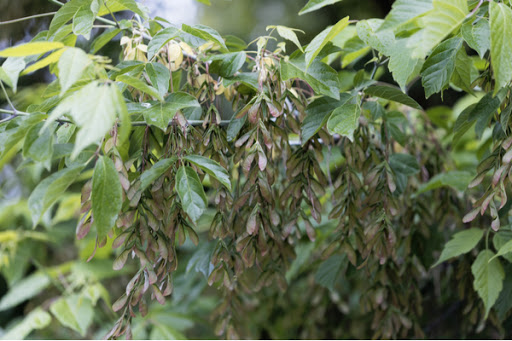
Why are boxelder bugs here now?
Starting in mid-spring, boxelder bugs re-emerge from their overwintering sites. Boxelder bugs are very temperature sensitive, and upon awakening, they’re usually lethargic and cold. To order to warm themselves up and regain their energy, boxelders seek out heat-reflective surfaces. During spring, you may see large concentrations of boxelders congregating around sunny places such as windows or porches.
By summer, boxelders are seeking mates and food. To find both, they’ll seek out other boxelders around food sources such as acer trees. When boxelders congregate, they release a pheromone that attracts more boxelders to their location. These boxelders eat, mate, and lay eggs on or near their food sources.
What do boxelder bugs want?
During the summer, boxelder bugs are primarily looking for mates and food. They’ll typically leave their usual sunning places in favor of food sources. During summer, you may find congregations of boxelder bugs clustered around the lower trunks of acer trees. These bugs feed on the seeds falling from the branches and lay eggs on the trunk and leaves.
Boxelders are slightly less common around homes during the summer, but they’re not unheard of. You may continue to see boxelder congregations around your home all summer, especially if there are acer trees nearby. Boxelders also like to sun themselves to warm back up after cloudy weather or rainfall. The more you see boxelders during summer, the more likely they’ll attempt to overwinter near you in fall.
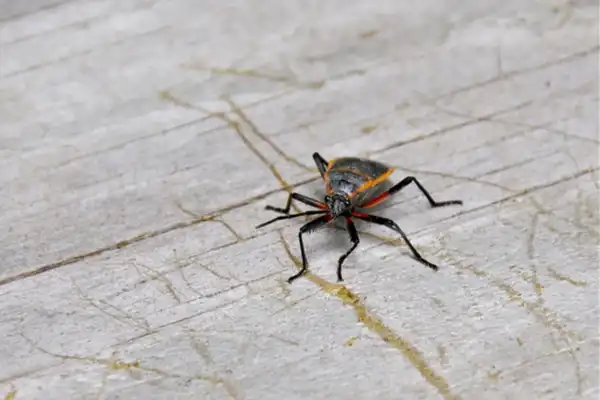
Why are boxelder bugs around my home?
If you’re seeing boxelders around your home constantly, it’s probably because they’re getting food nearby. Boxelders feed almost exclusively on the seeds of boxelder, maple, and ash trees. Once they find a good food source, they’ll spend all summer feeding off of it and mating nearby. Boxelders lay eggs near food sources, usually on trunks, branches, and leaves.
Boxelder bugs are also naturally attracted to warm, sheltered areas, which may bring them closer to you. Homes with southern or western exposure tend to deal with more boxelders than most, because the sun shines on those homes longer every day. Tall buildings and structures with many large glass windows also tend to attract boxelders. If you find boxelders near your home, you’ll probably see them on garden level windows, porches, decks, or sidewalks.
What can I do about all of these boxelders?
The most effective way to avoid dealing with boxelders is to remove the boxelder tree from your property. You probably don’t want to do that, however, so follow these alternative tips instead. First, don’t crush the boxelders you find. Smashing the bugs will only release the foul-smelling liquid they also release when threatened. This liquid contains pheromones other boxelders find attractive. In other words, killing boxelders will only attract more boxelders to you.
Instead of killing them, vacuum up the boxelders you find and throw out the bag when you’re finished. Wipe down the surfaces where boxelders congregate with soapy water to remove the pheromone they secrete. Mow your lawn frequently to pick up fallen acer seeds as much as possible and deprive the bugs of their food source. To prepare for fall, you should also look for signs of gaps or cracks near areas where the bugs congregate. Patch up any gaps you find with weatherproofing or caulk.
If you’ve tried all of this and still have a boxelder bug problem, don’t give up hope! You can always get in touch with Griffin Pest Solutions. Our experts have the tools and know how to remove your boxelder problem this summer… before they move in with you this fall!

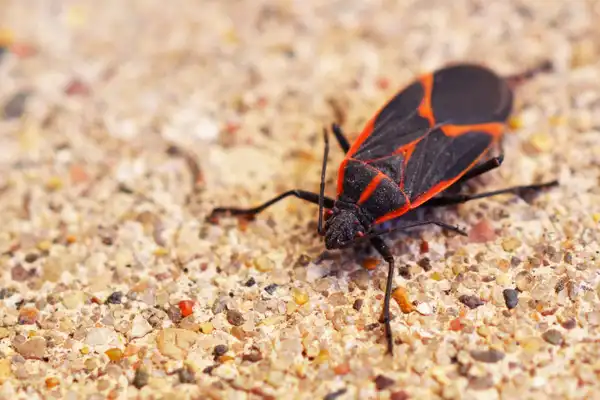
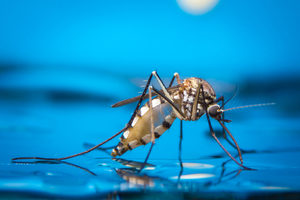 When you think “summer bugs,” you almost certainly think of
When you think “summer bugs,” you almost certainly think of 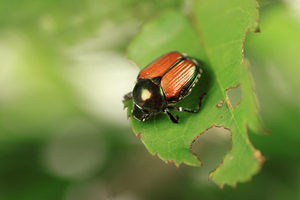 Japanese beetles
Japanese beetles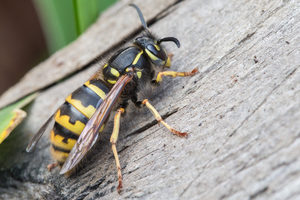 Wasp
Wasp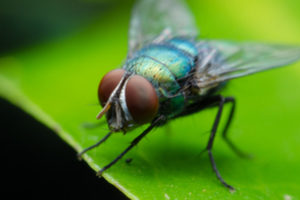 Several types of
Several types of